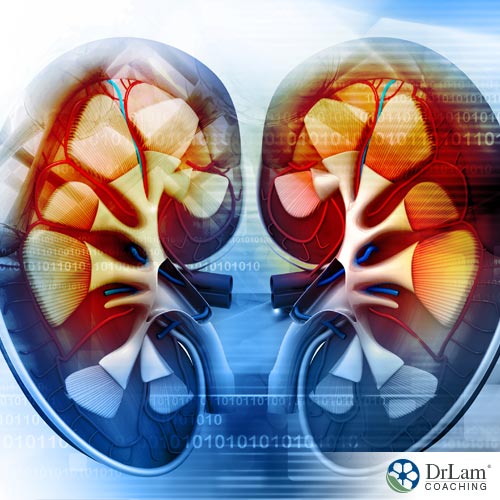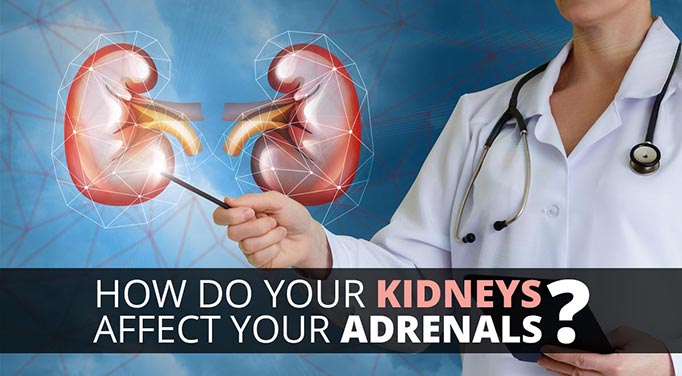 The kidneys are two fist-sized organs, one on either side of the body, whose purpose is the filtering of blood to remove waste and toxins. They serve to keep the blood composition stable and thus help the body continue functioning appropriately. And they do their job remarkably well, unless kidney disease strikes.
The kidneys are two fist-sized organs, one on either side of the body, whose purpose is the filtering of blood to remove waste and toxins. They serve to keep the blood composition stable and thus help the body continue functioning appropriately. And they do their job remarkably well, unless kidney disease strikes.
Kidney disease can be caused by a number of factors:
Overall, the prevalence of kidney disease in the U.S. is about 14%. More women than men contract this condition. This rate increased greatly in the 1980s and 1990s, then leveled off in the early 2000s. It reached a peak in 2006, then slowly began declining.
African Americans have a 3.7 times greater prevalence than Caucasians of contracting kidney disease, while Native Americans have a 1.4 times greater prevalence, and Asian Americans have a 1.5 times greater prevalence than Caucasians.
Kidney disease is called a “silent disease” because it may have no symptoms in the early stages and thus not be accurately assessed until it’s advanced. Possibly because of this, kidney disease kills more people than breast or prostate cancer.
The primary function of the kidneys is filtering the blood. Anywhere from 130 to 150 quarts of blood flow through the kidneys, yielding one or two quarts of urine. In this way, the kidneys help remove waste products, toxins, and excess liquids from the body.
They are part of the circulatory system because of the major arteries and vessels leading to the kidneys. Also, they’re part of the excretory system tasked with removing wastes from the body.
A part of the endocrine system, the adrenals are located on top of the kidneys. One major task of these organs is secreting hormones that serve several purposes in the body.
One of the major hormones secreted by the adrenals is cortisol . This is the hormone your body needs when under stress. Anytime stress comes into your life, your body responds the same way regardless of the origin of the stress.
The hypothalamic-pituitary-adrenal (HPA) axis is activated, setting in motion a cascade of hormonal and chemical changes. At the end of this cascade, the adrenals secrete cortisol to fight the effects of stress.
Ordinarily, once the stress is over, the adrenals return to a state of homeostasis. When stress continues, the burden of producing more and more cortisol can lead to adrenal fatigue, where the adrenals can no longer produce sufficient cortisol and the effects of stress grow.
Initially, adrenal fatigue presents vague symptoms. As the condition worsens, so do the symptoms, until finally, they may become so severe as to render the person bedridden and/or unable to function.
Overall, the side effects felt by those with kidney disease who are taking prednisone are very similar to the symptoms of Adrenal Fatigue Syndrome (AFS). Some of these side effects include obesity, kidney stones, irregular menstruation, high blood pressure, and osteoporosis. If people with kidney disease are taking prednisone, any problems with their adrenals may not be noticed.
Even though a person with kidney disease may have no symptoms and only discover their condition through blood work, there are some symptoms that definitely point to this condition. Swelling of the legs, blood in the urine, frothy urine, and difficulty controlling high blood pressure are some of those symptoms.
Other symptoms that may present with kidney disease include:

There are a set of symptoms that kidney disease and adrenal fatigue have in common. Fatigue, digestion problems, trouble with concentration, lowered sex drive, increased likelihood of catching colds and flu, and irregular menstruation are a few of these.
Both kidney disease and adrenal fatigue sometimes have, as a part of their symptom picture, a feeling of overwhelming energy loss. This feeling of fatigue is present even though a person gets a sufficient amount of sleep. This commonality between the two conditions is due partly to their close relationship anatomically and biochemically.
Even though the adrenals and kidneys are closely related anatomically, the onset of the conditions appear to be unrelated. One health condition that may show a connection between kidney disease and adrenal fatigue is increased acidosis.
Acidosis occurs when the acidity level of the blood gets too high. It is a risk factor for adrenal fatigue. Both the kidneys and adrenals play a part in balancing the acidity of the blood. When the kidneys become diseased and reach the advanced levels of the disease, they no longer are able to effectively rid the body of excess acid. This leads to acidosis and an increased risk of adrenal fatigue.
Fatigue itself is an often experienced symptom of kidney disease, especially in the later stages. One factor of this condition that brings on fatigue is a lower level of red blood cells caused by a lack of erythropoietin. This chemical compound stimulates the bone marrow to produce red blood cells. With a low red blood cell count, the body doesn’t get enough blood supply and the energy that comes with it, thus leading to fatigue. Red blood cells contain a protein called hemoglobin that transports oxygen through the blood to the body. A reduced amount of oxygen to the cells leads to feelings of fatigue.
Another aspect of kidney functioning that can lead to fatigue is an imbalance of extracellular fluid in the case of kidney disease. This keeps cells from getting good nutrition, leading to fatigue. The loss of appetite, problems with digestion, nausea, and vomiting often seen with kidney disease can also lead to a loss of folic acid and iron. This may then prompt fatigue.
In more severe cases of kidney disease, the levels of fatigue can reach major proportions. This type of fatigue can lead to debilitation, interference in daily activities and work, and even to the person becoming bedridden. When fatigue is a symptom of kidney disease, the possibility of a good outcome tends to be more pessimistic.
Another connection between kidney disease and AFS is the fact that many people with this condition take prednisone to lower the levels of protein in the urine. Prednisone is a corticosteroid and mimics those produced by the adrenals. This then leads the adrenals to cease production of corticosteroids. Ideally, once the prednisone is stopped, the adrenals resume production of corticosteroids. But with AFS, this may not be the case, especially during the later stages of AFS. This could lead to continuing lower production of these needed compounds.
In order for remediation efforts to be effective, there first must be an accurate assessment of any condition. This is true for both kidney disease and AFS. In the case of the former, there are well-researched and frequently used evaluation techniques that lead to this accurate assessment.
In the case of AFS, this is less true. Conventional medicine doesn’t even recognize AFS as a “real” condition. It treats only symptoms or individual organs that are affected. A more comprehensive approach to assessing AFS comes through the NeuroEndoMetabolic (NEM) stress model. This approach evaluates six different organ systems that act in an interdependent manner when stress strikes the body and leads to adrenal fatigue. This approach allows for a more accurate and thorough assessment of the effects of AFS, leading to a more effective remediation effort.
While there are conventional medicine approaches to the remediation of kidney disease, these typical methods have some serious side effects. In some cases, the side effects may be as bad as or worse than the condition itself. Therefore, it’s important to consider natural interventions that can address kidney disease without the side effects. It is interesting to note that these interventions are the same as, or similar to, the ones used in addressing AFS.
It is also important to note that some healthcare practitioners think you should not use herbal supplements if you have kidney disease. Some of these supplements may cause harm to the kidneys and worsen any condition you may have. They appear to interfere with the kidneys’ ability to rid the body of waste products.
But many healthcare practitioners do recommend natural remedies for problems with your kidneys. Most, if not all, recommend a plant-based diet, daily probiotic use, and increased vitamin D.
The body requires a good supply of adequate nutrients, including vitamins and minerals, to function optimally. You will likely need supplementation to achieve this adequate supply.



© Copyright 2018 Michael Lam, M.D. All Rights Reserved.
Yes, especially fatigue. Kidney disease causes fatigue in much the same way AFS does. This especially is prevalent in the later stages of the condition. Difficulties with concentration, digestion, high blood pressure, loss of appetite, and menstruation are also present.

